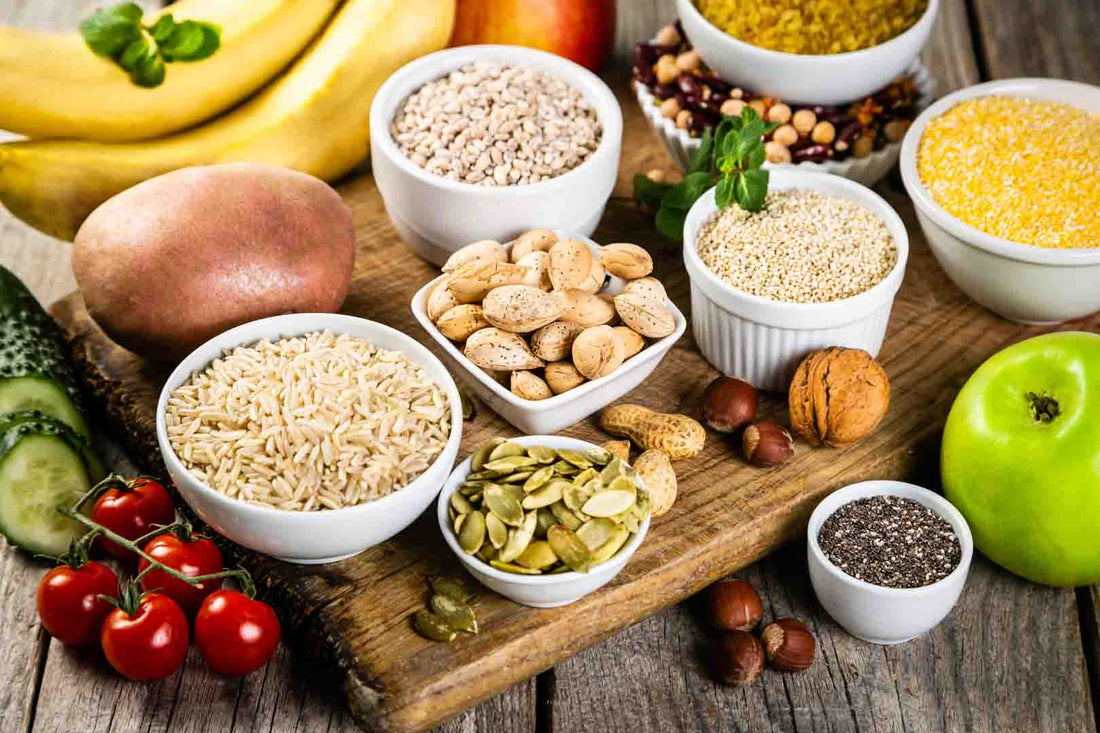Our diet has a huge impact on our well-being. What and how we eat can affect our mood, our energy and our physical well-being. At the same time, our diet also has an impact on the environment and the sustainability of our consumption patterns. In this article, we want to look at the relationship between food and well-being and also show how we can make meaningful choices to have positive effects on how we feel and on the environment.
The impact of our diet on our well-being
It is no secret that our eating habits, our food culture or simply put our diet plays an important role in our physical well-being. A balanced diet with sufficient vitamins, minerals and fibre can help us feel energetic and fit. On the other hand, imbalance can lead to fatigue, digestive problems and a general feeling of unwellness.
But our diet also has an impact on our mood. Certain foods can help us feel happier and more content, while others can make us feel sluggish and tired. For example, consuming sweets or junk food can lead to a short-term boost in energy, but in the long term can lead to mood swings and a poor body image. On the other hand, foods like fruits, vegetables and whole grains can help us feel more satisfied and balanced.
The importance of sustainability in our diet
It's not just about our personal wellbeing when we look at nutrition. We also need to consider the impact of our diet on the environment and the sustainability of our consumption patterns.
Modern agriculture often has negative impacts on the environment, such as the use of pesticides and fertilisers, the pollution of rivers and water bodies, and deforestation. At the same time, there are many foods that have a high carbon footprint due to their production or transport, such as meat, exotic fruits and ready meals.
By choosing to eat sustainably, we can help minimise these impacts. For example, we can choose regional and seasonal foods that do not have to be transported far and therefore produce less CO2. We can also reduce our consumption of meat and dairy products and switch to plant-based proteins such as pulses or tofu instead. Buying organic and fair trade food can also help minimise environmental impact.
Tips for a sustainable and beneficial diet
In order to integrate a sustainable and beneficial diet into our daily lives, there are some tips we can follow:
- Regional and seasonal foods: we can choose foods that are grown in our region and in the current season. This not only reduces the carbon footprint, but also the cost and dependence on imports.
- Plant-based proteins: We can cut down on our consumption of meat and dairy products and switch to plant-based proteins instead. Pulses, nuts, tofu and soy are good alternatives.
- Reduce processed foods: We can reduce our consumption of processed foods, which are often high in sugar, fat and salt. Instead, we can opt for fresh fruits, vegetables, whole grains and unprocessed foods.
- Organic and fair-trade food: We can choose organic and fair-trade food to minimise the negative impact on the environment and working conditions in agriculture.
- Cooking our own meals: We can prepare our own meals to have control over ingredients and sustainability. Preparing meals can also be a relaxing and creative experience that can contribute to our well-being.
Conclusion
Our diet has a huge impact on our wellbeing and the environment. By choosing to eat in a sustainable and beneficial way, we can help to feel healthier and happier, while also protecting the environment. By incorporating regional, seasonal and unprocessed foods, as well as plant-based proteins and organic and fair trade foods, we can greatly limit the impact of our diet on the environment.










